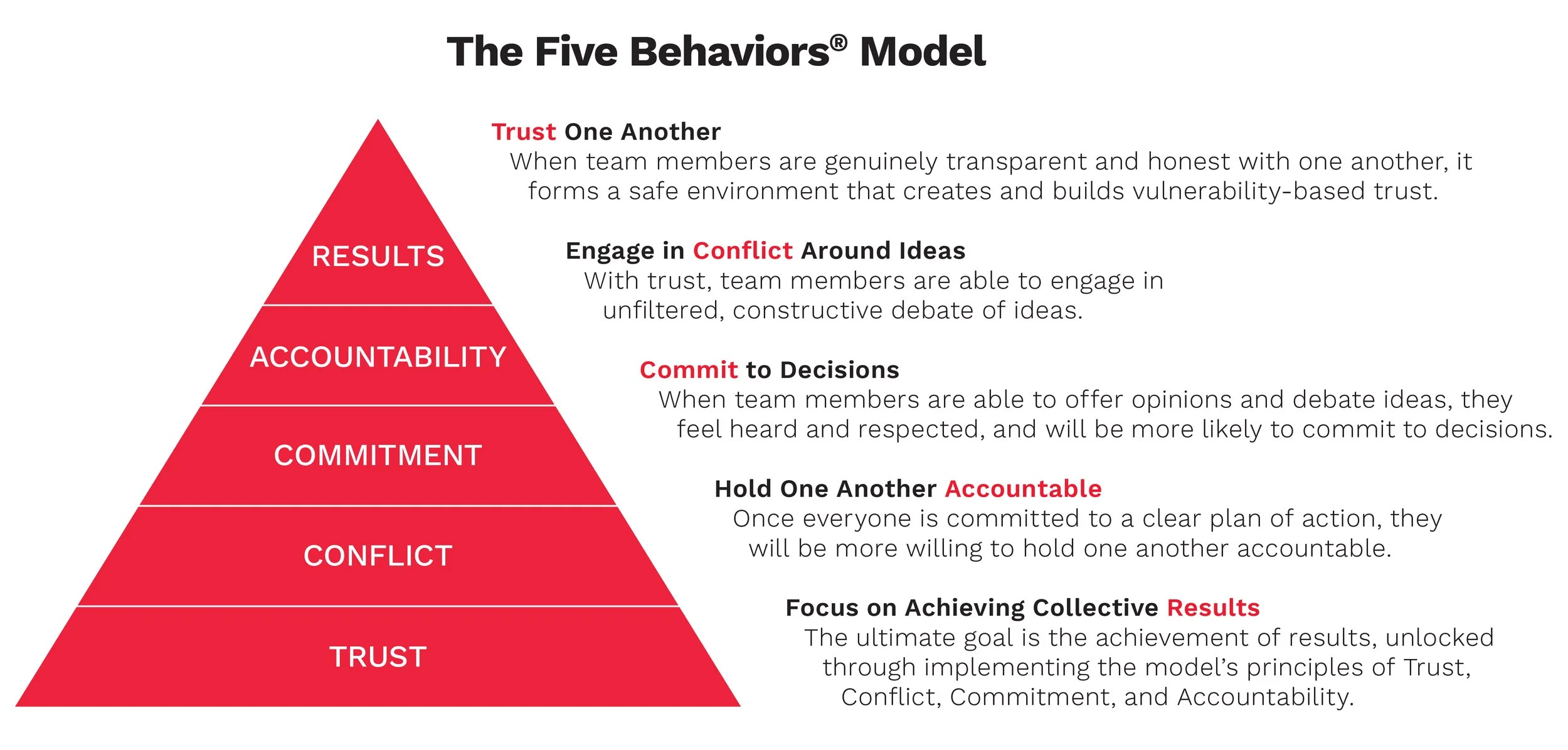Do you want to make a strong impact on your organization's or your team's effectiveness? Here's a way to build your portfolio and make a difference: Earn the Five Behaviors® Certification! This will prepare you to deliver engaging and impactful Five Behaviors® experiences that build cohesive teams.
In this two-week immersive experience that combines live, instructor-led sessions with self-guided online learning, you will:
· Discover the foundational principles of The Five Behaviors model.
· Explore the entire Five Behaviors solution portfolio from two perspectives – the learner and the facilitator.
· Learn how to build custom solutions and deliver Five Behaviors experiences.
· Practice facilitation and coaching techniques while receiving feedback in a supportive environment.
· Gain ongoing access to Wiley’s online training center, where you can access all of the course content and connect with their fellow Practitioners and Wiley’s education specialists.
Upon successful completion of the exam, you will earn the credential of The Five Behaviors Certified Practitioner. You must own a Five Behaviors Facilitation Kit which is not included with the course. You may purchase the kit separately from me.
Click on Certifications here, then Five Behaviors - https://www.karengeiger.com/the-five-behaviors-facilitator-certificationkg - to find the dates that work best for you (all virtual).





